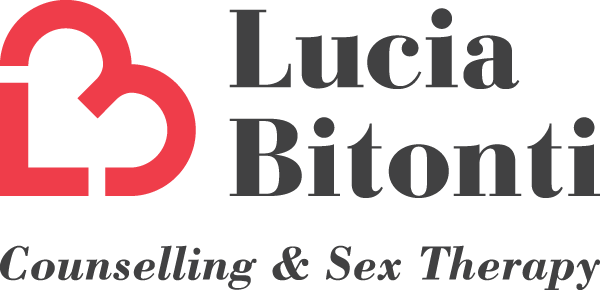Navigating the choppy waters of a relationship can sometimes feel like a daunting task. Conflicts, while inevitable, can be the catalyst for growth and understanding if handled with care and wisdom. At Lucia Bitonti, we believe in empowering couples with strategies to transform conflicts into opportunities for strengthening their bond. This article delves into effective conflict resolution strategies for couples, offering insights and tools to turn discord into a deeper understanding and stronger connection.
Understanding The Root of Conflict
Before diving into resolution strategies, it’s crucial to understand what sparks conflicts in relationships. Often, disagreements stem from differences in values, expectations, or communication styles. Recognising these underlying factors is the first step towards effective resolution.
At Lucia Bitonti, our services are tailored to address these core issues, guiding couples through the intricate process of understanding and resolving their conflicts. By focusing on the roots of disagreements, we help partners develop a deeper comprehension of each other’s perspectives, paving the way for healthier communication and stronger bonds.
Strategies for Harmonious Resolution
-
Active Listening:
- Empathy is Key: Truly listen to your partner’s perspective without planning your rebuttal. This involves not just hearing their words, but also understanding their emotions and viewpoints.
- Reflect and Validate: Show that you’ve heard and understood by reflecting their feelings and validating their experiences.
-
Effective Communication:
- Use “I” Statements: Express your feelings and needs without blaming or accusing. For example, “I feel upset when…” instead of “You always make me feel…”
- Be Clear and Direct: Avoid assumptions and express your needs and feelings clearly.
-
Managing Emotions:
- Stay Calm: High emotions can escalate conflicts. Taking a moment to breathe and calm down can prevent the situation from worsening.
- Recognise Triggers: Be aware of what triggers you and your partner, and work towards addressing these sensitively.
-
Finding Common Ground:
- Seek to Understand: Sometimes, it’s not about who’s right but about understanding each other’s perspectives.
- Compromise: Find a middle ground where both partners feel their needs are met.
-
Seeking External Support:
- Counselling: Sometimes, having a neutral third party like a relationship counsellor can provide valuable insights and tools for resolution.
Implementing These Strategies in Your Relationship
Implementing these strategies requires patience and practice. Remember, it’s about progress, not perfection. Start by choosing one strategy and focus on incorporating it into your daily interactions. For additional guidance and tips on how to effectively implement these strategies, resources such as MindBodyGreen offer a wealth of information on relationship dynamics and personal growth.
When to Seek Professional Help
If conflicts in your relationship become frequent and intense, causing significant distress, it might be time to seek professional help. At Lucia Bitonti, we specialise in offering tailored support to couples facing such challenges. Our blog provides a wealth of information and insights, helping couples understand when and how to seek assistance. By exploring our blog, you can gain valuable perspectives on managing relationship dynamics and learn when professional intervention might be the most beneficial step to navigate through your challenges and emerge stronger as a couple.
The Art of Apology and Forgiveness
One of the most significant aspects of resolving conflicts in a relationship is mastering the art of apology and forgiveness. This doesn’t just mean saying “sorry” but understanding the impact of one’s actions and expressing genuine remorse. Forgiveness, on the other hand, is about letting go of grudges and resentment, which can be a transformative process for both partners.
- Apologise Sincerely: A heartfelt apology can bridge gaps. It’s about acknowledging your mistake and its impact on your partner. Understanding the psychology behind apologies and their impact can be further explored in resources such as Psychology Today, which offers insights into emotional healing and reconciliation.
- Forgive and Let Go: Forgiveness is a gift you give yourself and your partner. It’s about moving forward without holding onto past hurts.
Setting Boundaries
Healthy boundaries are essential in any relationship. They help partners feel respected and understood. During conflicts, clear boundaries can prevent the situation from escalating and ensure that both partners feel safe and heard.
- Define Your Boundaries: Communicate what is and isn’t acceptable in terms of words and actions.
- Respect Each Other’s Boundaries: Once boundaries are set, it’s crucial to respect them. This builds trust and respect in the relationship.
The Role of Patience and Understanding
Patience and understanding are the bedrocks of a healthy relationship, especially during conflicts. It’s important to give your partner the space and time they need to express themselves and to approach conflicts with a willingness to understand their perspective. In many cases, counselling can play a pivotal role in fostering this patience and understanding. Professional counselling services, like those offered at Lucia Bitonti, provide couples with the tools and guidance needed to navigate through their conflicts.
- Be Patient: Understand that resolution might not happen immediately. Give each other time to process and reflect.
- Seek to Understand: Make an effort to see things from your partner’s point of view. This can change the entire dynamic of the conflict.
Avoiding Common Pitfalls
Certain behaviors can exacerbate conflicts rather than resolve them. Being aware of these and actively avoiding them can make a significant difference.
- Avoid Criticism and Contempt: These are relationship killers. Approach conflicts with a mindset of resolving them, not winning them.
- Steer Clear of Defensiveness: This can escalate the conflict. Instead, try to listen and understand your partner’s perspective.
The Power of Positive Reinforcement
Remember to focus on the positive aspects of your relationship, even when addressing conflicts. Positive reinforcement can strengthen your bond and create a more supportive environment for dealing with disagreements.
- Express Appreciation: Regularly express gratitude and appreciation for each other.
- Celebrate Small Victories: Acknowledge and celebrate when you successfully navigate a conflict..
Creating a Conflict Resolution Plan
Having a plan in place can help couples manage conflicts more effectively. This involves identifying triggers, agreeing on communication strategies, and deciding on a course of action when conflicts arise.
- Identify Triggers: Know what typically sparks conflicts in your relationship and plan how to handle these situations.
- Agree on Communication Strategies: Decide on how you will communicate during conflicts (e.g., using “I” statements, taking turns to speak).
- Plan for Resolution: Agree on steps to take when conflicts arise, such as taking a time-out to cool down or scheduling a time to discuss the issue calmly.
Maintaining a Healthy Relationship Outside of Conflicts
It’s important to nurture your relationship outside of conflicts. Engaging in positive, bonding activities can strengthen your connection and make it easier to handle conflicts when they arise.
- Spend Quality Time Together: Regularly engage in activities that both partners enjoy.
- Keep Communication Open: Regularly check in with each other about your feelings, hopes, and dreams.
Conclusion
While conflicts in relationships are inevitable, they don’t have to lead to discord. With the right strategies, couples can navigate these challenges and emerge stronger. If you’re finding it difficult to manage conflicts in your relationship, don’t hesitate to reach out to us at Lucia Bitonti. Our team is dedicated to supporting couples in their journey towards a harmonious and fulfilling relationship.
Frequently Asked Question
Q1: What are common causes of conflict in relationships?
Differences in communication styles, values, and expectations are common causes. Understanding these can pave the way for effective resolution.
Q2: How can we improve communication during conflicts?
Use “I” statements, listen actively, and ensure both partners have a chance to express themselves without interruption.
Q3: Is it normal for couples to have conflicts?
Absolutely. Conflicts are a normal part of any relationship and can be an opportunity for growth if handled constructively.
Q4: When should we consider couples counselling?
If conflicts become frequent, intense, and unresolved, leading to distress in the relationship, consider seeking professional help.
Q5: Can conflicts in a relationship be beneficial?
Yes, when resolved healthily, conflicts can lead to a deeper understanding and stronger connection between partners.
Q6: How can we prevent conflicts from escalating?
Stay calm, recognise emotional triggers, and take a break if needed to prevent the situation from escalating.


